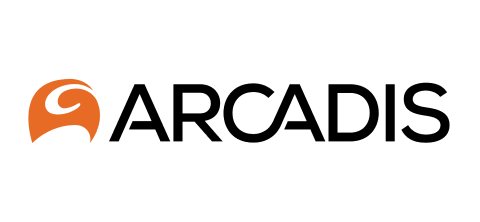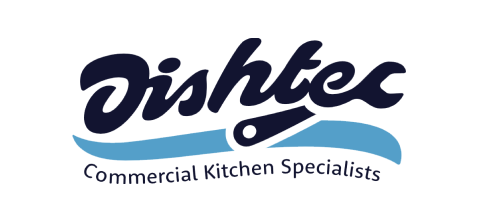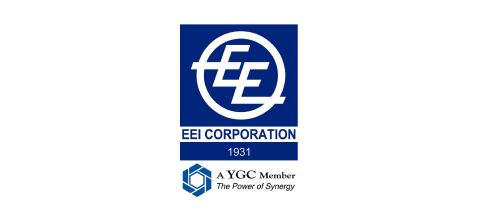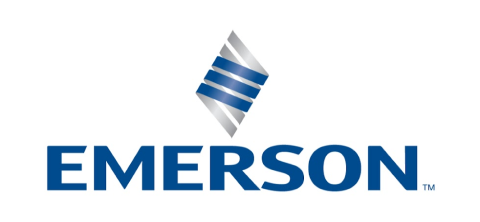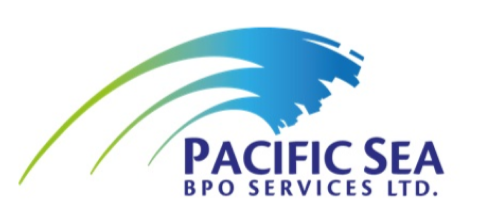Are you at a fork in the road, unsure whether to embark on the journey of learning English? Making an informed decision is critical whether you are a native speaker of another language or looking to improve your language skills. English proficiency opens up a world of opportunities, but it’s critical to consider your motivations and goals before taking the plunge.
This comprehensive guide will lead you through a series of thought-provoking questions designed to help you assess the value of learning English, investigate its potential benefits, and ultimately decide whether to embark on this language-learning adventure.
What are your personal and professional aspirations?
Consider how English fluency aligns with your career goals, travel aspirations, and personal interests. Assess the potential impact of enhanced language skills on your desired future path.
One of the first questions to ask yourself when deciding whether to learn English is how this pursuit aligns with your personal and professional goals. Take some time to imagine your future and identify the key areas where English fluency could be useful. Are you a student who aspires to attend an English-speaking university? Or are you a professional looking to advance your career in a global setting?
English proficiency can open doors to prestigious universities, scholarship opportunities, and international research collaborations for students. English proficiency allows you to gain access to a vast array of academic resources, connect with global experts, and participate in international conferences and workshops.
The advantages are equally compelling for professionals. Many multinational corporations use English as their official language, so knowing it can increase your marketability and job prospects. Effective communication with clients, colleagues, and business partners from various linguistic backgrounds becomes second nature, enhancing your ability to thrive in a globalized workplace.
Furthermore, English is the de facto language of many industries, including technology, science, tourism, and diplomacy. Mastering English can significantly increase your chances of success, whether you want to be a successful entrepreneur or a global diplomat.
How will English proficiency benefit you?

Reflect on the practical advantages of learning English. Will it improve your communication with colleagues, clients, or friends? Will it open doors to international job opportunities?
Aside from your personal and professional goals, it’s critical to consider the practical benefits of learning English. Consider how English fluency can improve various aspects of your life.
First and foremost, being fluent in English improves your communication skills. You will be able to confidently express your thoughts, ideas, and emotions in an international language that crosses borders. This not only fosters meaningful connections but also allows you to share your distinct point of view with a global audience.
English proficiency also makes travel and exploration easier. Imagine effortlessly navigating bustling cities, picturesque landscapes, and historical landmarks, relying on your language skills to interact with locals and fully immerse yourself in new cultures.
English fluency gives you access to a treasure trove of knowledge and research in academia. You can read renowned authors’ works, access scholarly articles, and participate in global academic debates.
Furthermore, English is the dominant language in entertainment and media. By learning the language, you will be able to enjoy movies, TV shows, music, and literature in their original form, without having to rely on translations or subtitles.
Furthermore, fluency in English promotes adaptability and resilience. The ability to communicate across cultures is becoming increasingly valuable in an ever-changing world. Learning English gives you the tools you need to navigate different situations, overcome barriers, and thrive in a rapidly globalizing society.
What are your language learning preferences?

Explore the parts of speech, verb tenses, sentence structures, subject-verb agreement, noun forms, adjective usage, adverb placement, prepositions, articles, punctuation, and other aspects of English grammar that interest you the most. Identifying your preferences can help tailor your learning approach.
It is critical to identify your language-learning preferences before embarking on a successful language-learning journey. When it comes to learning new skills, including language proficiency, different people have different preferences. Consider the following elements:
- Are you a visual learner who benefits from diagrams, charts, and other visual aids? Do you prefer auditory methods, such as podcasting or language learning apps? Understanding your learning style will assist you in tailoring your language-learning strategy.
- Structured Classes: Many language learners thrive in a structured classroom environment where they are guided by a teacher. Enrolling in a language course may be the best option if you prefer a structured curriculum and regular assessments.
- Immersion: Some people prefer immersive experiences in which they are immersed in the language, culture, and native speakers. Traveling to English-speaking countries, participating in language exchange programs, or joining language clubs are all examples of immersion.
- Online Resources: Language learning resources abound in the digital age, including apps, websites, online courses, and interactive language platforms. These resources offer convenience and flexibility, allowing you to learn at your own pace.
Consider your language learning preferences to help you choose the most effective and enjoyable ways to learn English.
How do you best learn new languages?
Analyze your learning style—whether you prefer immersive experiences, structured classes, language apps, or a combination. This will determine the most effective learning methods for you.
Identifying your language learning preferences is closely related to asking yourself how you best learn new languages. Consider your previous experiences with language learning or acquiring new skills. Consider the following inquiries:
- Have you previously learned another language? If so, what methods or approaches worked best for you?
- Do you thrive in an exploratory and spontaneous learning environment, or do you prefer a structured and systematic approach?
- What inspires you to learn and remember new information? Are personal interests, academic achievements, career opportunities, or travel experiences more important to you?
- Are you willing to experiment with a variety of learning methods in order to keep your language learning experience engaging and dynamic?
Understanding how you learn new languages best will help you create a personalized language-learning strategy that is tailored to your strengths and preferences.
Are you open to embracing a new culture?
Learning a language involves understanding its cultural context. Ask yourself if you are willing to embrace the English-speaking world’s customs, traditions, and perspectives.
Language learning is about much more than memorizing vocabulary and mastering grammar rules; it is about immersing yourself in a new culture. English is inextricably linked to the cultures of various English-speaking countries, each with its own set of customs, traditions, and perspectives. Learning English invites you to enter this diverse world and embrace the richness of various societies.
Consider exploring English literature, music, cinema, and traditions as you progress in your language-learning journey. Engaging with these aspects of culture can help you gain a better understanding of the language and a greater appreciation for the English-speaking world.
Furthermore, learning a new language helps to develop empathy and open-mindedness. You gain insights into the lives, histories, and values of people from various backgrounds, allowing you to cultivate a more complete worldview.
How will English proficiency impact your confidence?

Consider how being proficient in English might boost your confidence, whether in social interactions, academic pursuits, or professional presentations. Language’s power extends beyond effective communication; it influences our self-esteem and self-expression. Consider how English proficiency can boost your confidence in the following areas:
- Social Interactions: Knowing how to express yourself fluently in English allows you to confidently engage in conversations with native speakers and other learners. Your improved language skills will put you at ease in social situations, whether you’re meeting new people, networking, or participating in group discussions.
- Academic Pursuits: English is the academic and research language. As your English proficiency grows, you will feel more at ease in academic settings, actively participating in discussions, presenting research, and contributing to scholarly endeavors.
- Professional Development: Strong language skills can boost your confidence during interviews, presentations, and negotiations. Your ability to clearly and persuasively articulate ideas will position you as a valuable asset in the workplace.
- Personal Empowerment: Learning a new language, such as English, is an accomplishment in and of itself. The sense of accomplishment that comes with language learning can have a significant impact on your self-esteem and personal development.
Do you have access to suitable resources and support?
Evaluate the availability of language learning resources, classes, tutors, or language exchange opportunities in your community or online.
Access to appropriate language learning resources and support can have a significant impact on your progress and motivation. Examine the resources available in your community or online to meet your language learning needs. Take a look at the following:
- Language Schools and Institutions: See if your area has any language schools or institutions that offer English classes. Look for accredited schools with experienced teachers who can deliver structured lessons and provide guidance.
- Language Apps and Websites: Look into the numerous language learning apps and websites that are available online. From Duolingo and Babbel to Rosetta Stone and Memrise, these platforms keep you engaged with interactive lessons, vocabulary exercises, and language challenges.
- Online Tutors and Language Exchange: Look for online tutors who can provide personalized language coaching tailored to your specific requirements. Furthermore, language exchange programs bring together language learners from various backgrounds, allowing you to practice English with native speakers in exchange for them helping you with your native tongue.
- Language Meetup Groups: Look for language meetup groups in your community where you can interact with other English learners and practice speaking in a safe environment.
- Language Learning Forums and Blogs: Look into language learning forums and blogs. These platforms frequently provide helpful hints, resources, and insights from seasoned language learners and teachers.
Remember that consistent practice and exposure to the language are essential for improving your English. Access to appropriate resources and support will ease your language learning journey and keep you motivated.
How will learning English enrich your worldview?
Ponder on how acquiring a new language can broaden your horizons, deepen your understanding of global issues, and foster empathy for diverse cultures.
Learning a new language provides you with more than just vocabulary and grammar; it also provides you with a unique perspective on the world. Millions of people from various backgrounds, cultures, and experiences speak English. Learning English allows you to gain insight into the lives, histories, and values of those who speak the language.
Exploring different narratives, perspectives, and worldviews through English literature, films, and media. You can gain a better understanding of global issues, cultural nuances, and societal norms, allowing you to see the world in a more compassionate light.
Furthermore, learning English can lead to cross-cultural connections and friendships. You’ll make meaningful connections with native speakers and fellow learners as you interact with them across linguistic and geographical boundaries.
What are the potential challenges you may face?
Acknowledge any obstacles that could arise during your language learning journey, such as time constraints, fear of making mistakes, or finding the right learning environment.
Every language learning journey has its own set of difficulties. Recognizing these potential roadblocks can help you plan for and overcome them. Consider the following difficulties:
- Time Restrictions: Learning a new language necessitates consistent practice and dedication. Examine your schedule and commitments to see how much time you can devote to language learning.
- Fear of Making Mistakes: Many language learners are afraid of making mistakes when speaking. Remember that making mistakes is an essential part of the learning process. Accept them as chances to improve and grow.
- Lack of Motivation: It can be difficult to maintain motivation throughout your language learning journey. Set clear goals, celebrate small victories, and find ways to make learning enjoyable.
- Choosing the Best Learning Environment: Not all language learning environments will meet your requirements. Experiment with various methods and settings to find the one that best suits your needs.
Recognizing and anticipating these difficulties will enable you to approach language learning with a positive and proactive attitude.
Can you commit to consistent practice and improvement?
Assess your dedication to regular practice and improvement. Learning a language is a journey that requires perseverance and commitment.
Learning a language is a journey that necessitates dedication and commitment. Consider whether you are willing to incorporate language learning into your daily routine. Improvement requires consistent practice and exposure to the language.
Set attainable goals and devise a study schedule that works for you. Integrating English into your daily life, such as listening to English podcasts on your commute or watching English movies with subtitles, can help you improve your language proficiency significantly.
Remember that language learning is a process of gradual progress and continuous improvement, not a race. Celebrate your accomplishments, no matter how minor, and enjoy the journey as you improve your English skills.
Conclusion
Exploring these questions will help you make a well-informed decision about whether to learn English. Remember that language learning is a rewarding endeavor that can open up a world of opportunities and enrich your personal and professional life. Embrace the journey, and take the first step towards becoming proficient in English. Happy learning!
You’ll gain valuable insights into the importance of learning English for your personal and professional life as you work your way through the thought-provoking questions in this self-reflection guide. English proficiency provides numerous benefits, ranging from expanding your cultural horizons to improving your communication skills and career opportunities.
Learning English is a journey that necessitates dedication, motivation, and an open mind. Accept the challenges and rejoice in the victories along the way. Remember that learning a language is more than just memorizing words and grammar rules; it is also about understanding and connecting with people from various cultures and backgrounds.
The decision to learn English is ultimately a personal one. Take some time to consider your dreams, preferences, and goals. Whatever path you choose, keep in mind that learning a language is a rewarding experience that enriches your life and broadens your perspectives. So, whether you choose to go on this language-learning adventure or not, embrace it with enthusiasm and an open heart. Happy studying!
Enrol Now!
Ready to level up your business communication skills? Enroll now at American English Skills Development Center, Inc. 🚀🇺🇸
Unlock the potential of your professional communication with our specialized and customized training programs designed to cater to the demands of today’s business world. Our industry-leading instructors will guide you through real-world scenarios, ensuring you gain the confidence and competence to excel in any corporate setting. 💼✨
👍📝Join us today and experience the benefits of our practical approach, honing your speaking, writing, and presentation skills. Whether you’re a seasoned executive or a budding entrepreneur, our tailored courses will empower you to communicate with impact and influence, fostering success in every aspect of your career. 💼📸🎥
Don’t miss this opportunity to excel in the corporate world. Take the first step towards proficiency today! 🎯 Take the first step towards excellence by enrolling now at American English Training and Development Center, Inc. Your journey to professional success starts here!
Visit us at American English Skills Development Center, Inc. to discover how our practical approach to English training can propel you to success! 💼✨





